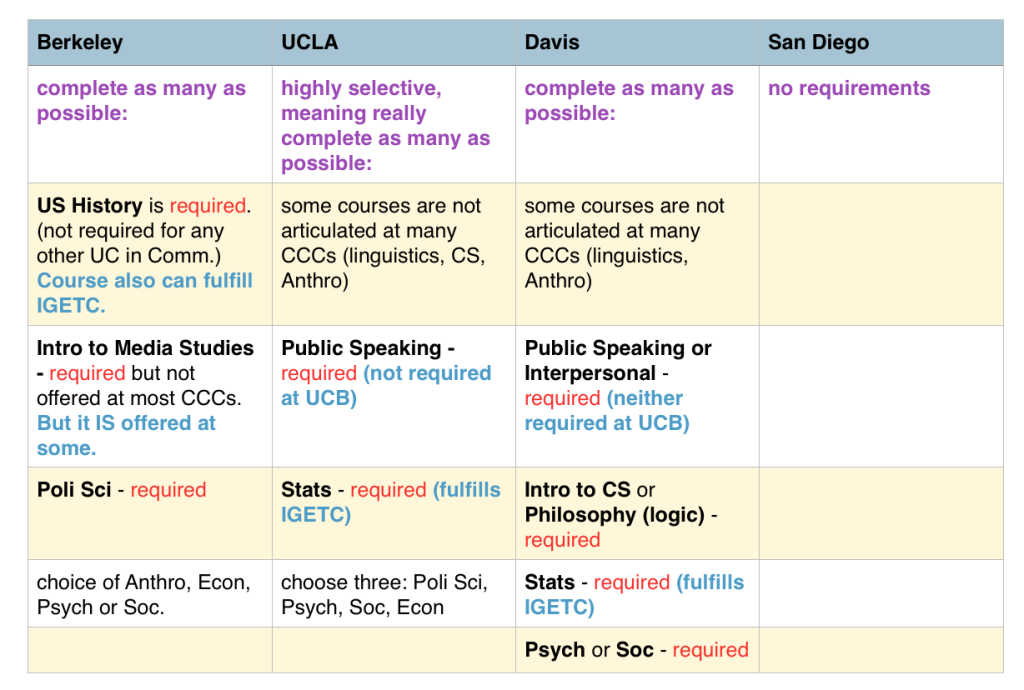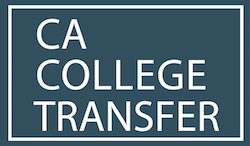Understanding the UC Transfer Pathways
I know the University of California has been touting the ease in transferring from a California community college to a UC now that they have instituted the 21 Transfer Pathways. But I’m here to tell you, while there are definite benefits for some people, this process (at least at this point in time) has been oversold. In my mind, it is currently causing more issues than resolving them.
Let me say straight out that at one point in time, in a galaxy far far away, the UC did acknowledge that the Transfer Pathways were best suited for the student not yet sure of his or her intended major path. There is a very high community college drop-out rate because students don’t start off with a game plan and don’t know where to turn for help. This is where the Transfer Pathways excel, and which was their intended purpose.
Rather than whittle away time taking unnecessary courses — and in the end, just giving up — the Transfer Pathways offer new CCC students a breadcrumb path as to the best route to take, based on interests.
Now here’s where it all falls apart – and REALLY falls apart.
I don’t think the UCs have made it clear that once you decide on a major, you simply must follow Assist. I have heard individual UC reps say this, but I have not seen it clearly laid out online. It needs to be.
These pathways are simply too generic to use all the way through your CCC experience, and do not account for variables within each UC’s major. Many UCs have their own collection of recommended courses you should take in a major to make you more competitive. It’s crucial to take as many of these courses as is reasonable, especially if a major is selective (impacted). The Pathways fall short when it comes to nuance. In other words, the devil is in the details.
Below are a few examples to illustrate this point:
Communications (Media Studies at UCB)

The above are not all the options for Communications per UC, just the ones I want to highlight.
- History is required at Berkeley – and it can be used for IGETC, but you need to choose the correct History course to fulfill both. So this is good to know in advance. Not listed in Pathways.
- Public Speaking is not required at UCB, only at two UCs. Listed in Pathways.
- Intro to Media Studies for UCB may be available at your CCC and if so, the department will most likely expect you to take it. Making it optional, as noted in Pathways, will not help your cause.
- Symbolic logic is an option (and not even required) for just one UC, yet it is singled out in Pathways.
- Econ may be a better alternative to Psych or Soc depending on your future plans, but econ is not mentioned in Pathways.
- Poli Sci is required at Berkeley, an option at UCLA, and not needed for Davis. If you are NOT applying to Berkeley, you may be better off fulfilling that requirement for the other UCs with a different course.
- Transfer Pathways link for Communications.
Psychology

The Transfer Pathways notes calculus as part of the Psychology Transfer Pathways.
- As you can clearly see, not all Psych majors require calculus!
- Also:
— Depending on your UC choice, you may not need a chemistry or physics course, as suggested in Pathways.
— Different UCs have very different psych courses, either recommended or required.
— Irvine accepts geography, econ or anthro for the Psych major, which you can fulfill by adding those specific courses to your IGETC plan. But you need to know in advance to choose correctly. - Transfer Pathways for Psychology
Computer Science
Just checking one single campus — UCLA — it notes Chemistry as a CS requirement. However, chemistry is not noted on the Transfer Pathways for Computer Science.
In conclusion
This is not meant in any way to negate the importance of the Transfer Pathways. They are put in place to serve a very specific segment of the CCC population, and they are an excellent addition. But once you have singled out your major, you need to examine the requirements at each campus on assist.org to make sure you figure out the best inter-connections so you remain as competitive as possible when you apply.


Comments (0)